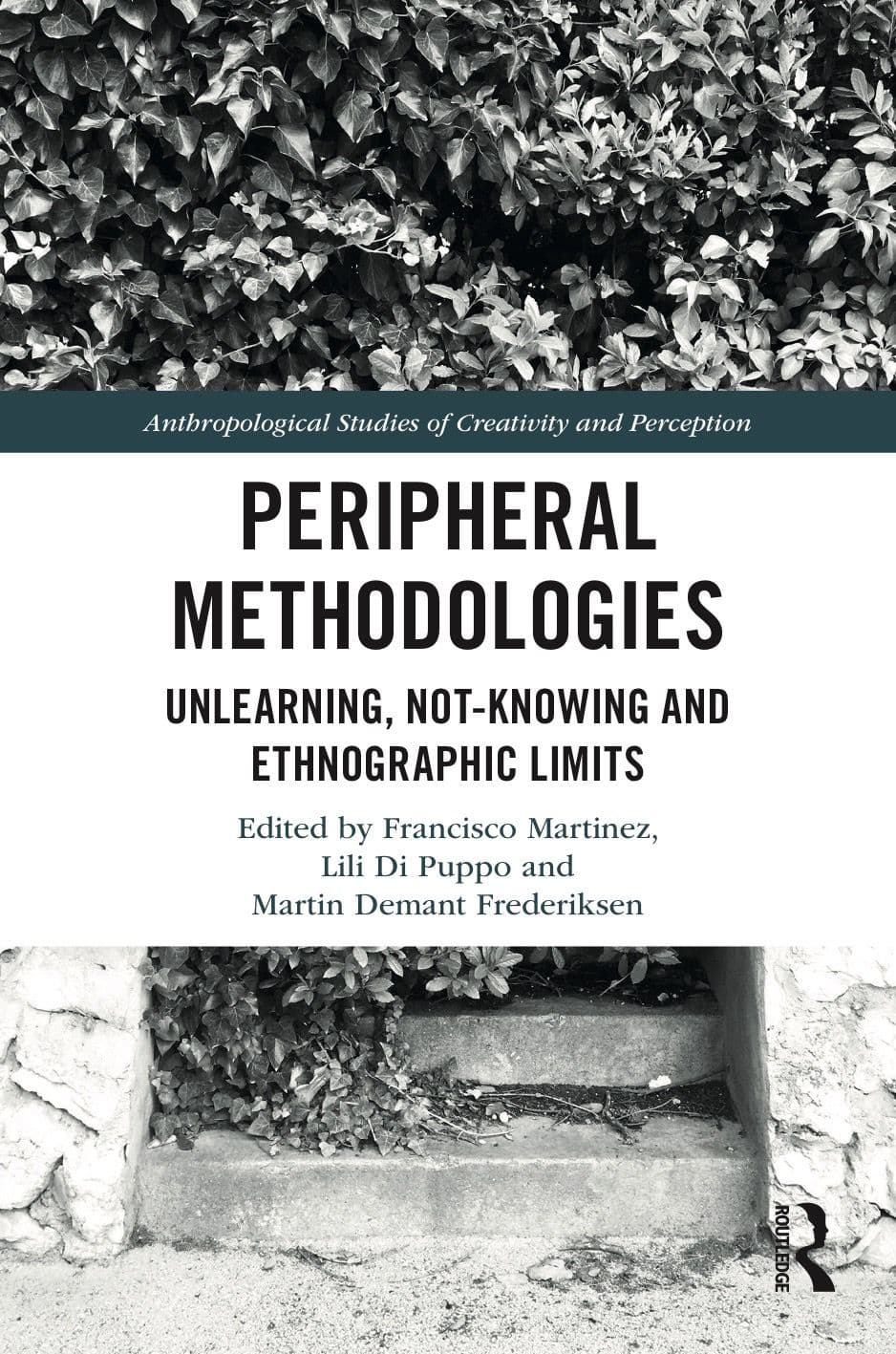
Unlearning, Not-knowing and Ethnographic Limits. With Lili Di Puppo & Martin D. Frederiksen
Routledge 2021
How does peripherality challenge our research and what we can know? This volume shows that peripherality is not only to be seen as a marginal condition, but rather as a form of theory-making that incorporates situated reflexivity and experimentation.
The research investigates that which cannot be easily captured and framed into normative boundaries. The book, therefore, examines how the peripheral can be incorporated into ethnographic research, and reflects on what it means to be on the periphery—ontologically and epistemologically.
Starting from the premise that clarity and fixity as ideals of modernity prevent us from approaching that which cannot be easily captured and framed into scientific boundaries, Peripheral Methodologies argues for remaining on the boundary between the known and the unknown in order to surpass this ethnographic limit.
Instead of domesticating the peripheral, the authors engage in unlearning their tools in order to integrate the empirical and analytical otherwise. From different angles, the contributors demonstrate that peripherality is not only to be seen as a marginal condition, but rather as a form of theory-making and practice that incorporates reflexivity and experimentation.
Praise
In a time when positivist pretensions seek to present qualitative work as predictable and controllable, the great asset of this stimulating volume is how it embraces the unknown. Ethnographers almost naturally enter their field peripherally. Always coming from elsewhere, strangers in language and everyday habits, their strengths reside in their potential to keenly observe and, in painstakingly learning, to lay open what is but tacitly present: the multitude of practices that are at the heart of the human condition.
Regina F. Bendix, University of Göttingen
Through sometimes tricky and often tense ethnographic chapters, the book helps to deepen and enliven debate on how to decenter customary epistemological, methodological and institutional practices, habits that have run their course, yet continue to resist unlearning. In these messy times, such efforts to cultivate attention are more necessary than ever, and I applaud the book’s ambition to pursue just that.
Eeva Berglund, Aalto University
It is really a book, not just a collection of studies pushed under an umbrella term. It tells a story, looking at friendship, home, childcare, craft-making, revelations and cooperations to delivers soft, nuanced, clever, self-reflective, eye-opening analysis. A good book for better times? Maybe. A good book for a better anthropology? Definitely.
Áron Bakos, AJEC
The main novelty of the book is to approach the concept of periphery as a methodological issue…. It aims to open a conversation about the need to generate different ways of being attentive to the reality, transcending conventional divides and pushing methods beyond their traditional disciplinary constraints. The path toward this objective is filled with provocative insights and arguments that make this book a significant contribution to anthropology.
Silvia Peirolo, ANUAC
